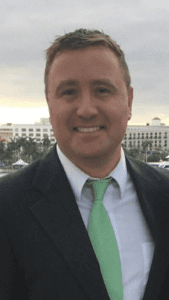Worship. Work. Ministry. Service. Craftsmanship. In our time and culture, we’ve defined each of those concepts differently, so that each needs its own distinct word in the English language. It’s become common, then, to think of worship as something you do on Sunday; work is what occupies your time Monday through Friday during business hours; ministry is something clergy does; service is a Saturday spent volunteering with Habitat for Humanity; and craftsmanship is an artist’s trade.

City Church Fort Lauderdale
In ancient Hebrew, however, there was one word to describe all of these concepts, and that word was avodah.
It’s used by God first in Genesis 2:15: “The Lord God took the man and put him in the Garden of Eden to work (avodah) it and take care of it.
It is used in Psalm 104:23 to describe manual labor: “Then man goes out to his work (avodah), to his labor until evening.”
It is used in Exodus 8:1 to describe worship: “This is what the LORD says: Let my people go, so that they may worship (avodah) me.”
It appears in Joshua 24:15 as the word for service: “But as for me and my household, we will serve (avodah) the Lord.”
The ancients knew the seamlessness. Your work is your ministry, and it’s also a primary way you worship God. Craftsmanship is to be done in service to others. It’s all one. This is how God made the world. And I submit that it’s the church’s role to help people uncover the seamlessness, or the continuity, that we are made for avodah.
Going into Ministry
Recently, I heard a pastor tell the story of a financial advisor who came to him and said, “Pastor, I’m leaving my job and going into the ministry!” The pastor decided to mess with him, and said, “Oh, you mean the financial ministry? That’s wonderful!” Sure, he probably confused and frustrated that parishioner, but he was trying to drive home the idea of avodah and the seamlessness of work and worship.
Avodah means it’s not just a financial industry; it’s a financial ministry. In this case, what if more people in the financial industry asked, “How can I leverage my calling to see more justice and equity in my community? How can I do my work with excellence (which is craftsmanship) so that it honors God (which is worship) and those who have entrusted me to steward their finances (which is service)?”
Avodah breaks down the walls between faith and work, sacred and secular. It reminds us that work was instituted before the Fall, before there was ever the need for redemption or a church. God put humans in a garden and said, “Get to avodah.”
Why Work?
I love how Dorothy Sayers stated it in her classic essay, “Why Work?”
“The Church’s approach to an intelligent carpenter is usually confined to exhorting him not to be drunk on Saturdays, and to come to church on Sundays. What the Church should be telling him is this: that the very first demand that his Christianity makes upon him is that he should make good tables. Sure, go to church by all means — but what use is all that if in the very center of his life and occupation he is insulting God with bad carpentry? What is Christian work? The only Christian work is good work well done. As we are so we make. It is the business of religion to make us Christian people, and then our work will naturally be turned to Christian ends, because our work is the expression of ourselves.”
Made to Flourish
As pastors, how do we uncover this kind of work for our people? Through Church United’s continual resourcing of pastors, I’m excited to join Made to Flourish, a new resource for pastors launching in this community. Made to Flourish exists to help pastors learn how to connect faith, work and economics so they can disciple their people better to live for Christ in all areas of life and advance the common good. They do this through online resources, learning communities and access to thought leaders. The network offers tools to infuse the concept of avodah into corporate worship, discipleship practices, pastoral practices and sermons.
The church faces an enormous challenge ahead as we watch more and more people in our culture drift away from organized religion, viewing the church as more irrelevant and disconnected from everyday life. But what if the church was part of the seamlessness? What if church was connecting Sunday faith to Monday work? I know many churches are working towards that already, and I hope to join them in this endeavor, learn from them, and collaborate with them.
Rev. Brad Schmidt serves as the Lead Pastor of CityChurch Fort Lauderdale — citychurchftl.com. Made to Flourish officially launches in Broward County in January 2018. If you’re interested in taking part, please contact City Directors Brad Schmidt ([email protected]) and Isaac Frere ([email protected]).

Comments